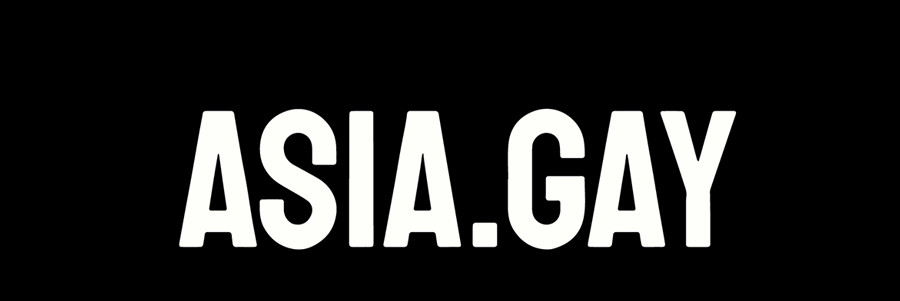
Triumeq: A Powerful Combination in the Fight Against HIV
Triumeq: The Power Trio Fighting HIV with Style
In the battle against HIV, medications are the unsung heroes, quietly doing their work behind the scenes to keep the immune system strong and the virus in check. Among them, Triumeq stands out like a well-rehearsed rock band—three powerful performers, one cohesive unit, all on a mission to save lives. So, what makes this combination pill so special? Let’s break it down.
Meet the Band: The Three Ingredients
Triumeq isn’t just one drug—it’s a combination of three antiretroviral agents all packed into a single tablet. Together, they hit HIV from multiple angles:
- Dolutegravir (an integrase strand transfer inhibitor - INSTI):
Think of dolutegravir as the mastermind. Its job is to stop HIV from integrating its genetic material into your DNA, which is a crucial step in the virus’s reproduction cycle. Without integration, the virus can’t take over the host cells to make more copies of itself. - Abacavir (a nucleoside reverse transcriptase inhibitor - NRTI):
Abacavir jumps in early in the virus’s attempt to copy itself. It mimics building blocks the virus uses to replicate, but once it’s inserted into the chain, it causes a “chain termination”—like a fake LEGO brick that makes the rest of the tower fall apart. - Lamivudine (another NRTI):
This one's the backup singer to abacavir—similar mechanism, different flavor. It adds another layer of interruption to the reverse transcription process. The redundancy here isn’t overkill; it’s strategic. Together, they reduce the chance of the virus mutating and becoming resistant.
Why Use a Combo Like Triumeq?
Taking three separate pills can be a logistical nightmare, especially over a lifetime. Triumeq simplifies things with once-daily dosing—just one pill with or without food, same time every day. It’s the ultimate in convenience, but the benefits go deeper:
- High efficacy: Studies have shown that Triumeq can rapidly reduce viral load, often to undetectable levels (which means you can’t transmit the virus—U=U, undetectable = untransmittable).
- Durable suppression: Long-term users often maintain low viral levels for years.
- Fewer pills = better adherence: Consistency is key with HIV treatment, and Triumeq makes that easier.
But Wait—It’s Not for Everyone
As powerful as Triumeq is, it comes with a few caveats.
1. Abacavir Hypersensitivity Reaction
Before prescribing Triumeq, doctors will test for a genetic marker called HLA-B*5701. If you test positive, you should not take Triumeq—abacavir can cause a serious (even life-threatening) hypersensitivity reaction in those individuals. This is one of the few times pharmacogenetics plays a role in routine care.
2. Mental Health Side Effects
Some users report mood changes, insomnia, or anxiety, especially linked to dolutegravir. While not extremely common, it’s worth watching out for, especially in those with a history of mental health conditions.
3. Not for Pregnant People (in some cases)
Dolutegravir had some early concerns about potential neural tube defects when taken during early pregnancy. While more recent data is reassuring, doctors may still weigh risks carefully depending on timing and alternative options.
Triumeq vs. the Competition
There’s a growing list of combination HIV medications on the market (like Biktarvy or Dovato), each with slightly different pros and cons. What makes Triumeq stand out?
It was one of the first single-pill regimens combining an integrase inhibitor with two NRTIs.
It’s often chosen for people who need a strong, reliable regimen and don’t have resistance to any of the components.
Some newer options are a bit gentler on the kidneys or have fewer interactions, so it’s all about matching the right tool to the right patient.
Here’s a comparison of Triumeq with some other popular HIV medications, breaking down key aspects to help make the differences clearer. Let’s compare Triumeq, Biktarvy, and Dovato, which are all highly regarded combination therapies in the fight against HIV.
Triumeq vs. Biktarvy vs. Dovato: A Head-to-Head Showdown
| Feature | Triumeq | Biktarvy | Dovato |
|---|---|---|---|
| Components | Dolutegravir + Abacavir + Lamivudine | Bictegravir + Emtricitabine + Tenofovir Alafenamide | Dolutegravir + Lamivudine |
| Pill Count | 1 pill daily | 1 pill daily | 1 pill daily |
| Class of Medications | Integrase Inhibitor + NRTIs | Integrase Inhibitor + NRTIs | Integrase Inhibitor + NRTIs |
| Resistance Profile | Strong; resistance less likely in those without prior ART failure | Strong; newer drug with high barrier to resistance | Strong; high barrier to resistance |
| Side Effects | Hypersensitivity reaction (abacavir), mood changes (dolutegravir) | Headaches, diarrhea, weight gain, possible kidney issues | Generally well-tolerated, some GI side effects |
| Renal Considerations | Some kidney monitoring recommended, particularly in those with existing issues | Requires kidney monitoring due to tenofovir alafenamide | Generally considered safer for the kidneys |
| Liver Considerations | Caution in patients with liver disease (especially hepatitis B/C) | Requires caution in liver disease, particularly with tenofovir | Safe for most liver conditions, but always monitored |
| Pregnancy | Caution during first trimester (dolutegravir), but generally okay | Safe for most, though consult healthcare provider | Safe for most, consult with healthcare provider |
| Cost | Typically affordable in many settings (generic options available) | Expensive without insurance, though generics may come soon | Expensive without insurance, though generics are coming |
| Best For | Those who are okay with abacavir, no prior history of hypersensitivity | People who need a potent regimen with a lower risk of kidney issues | Individuals needing a streamlined regimen with fewer potential side effects |
A Closer Look at the Components
- Triumeq:
The power in Triumeq comes from the combination of Dolutegravir, a top-tier integrase inhibitor, and Abacavir and Lamivudine, two nucleoside reverse transcriptase inhibitors (NRTIs). Abacavir has a risk of hypersensitivity reactions in certain individuals, so screening is essential. Dolutegravir is highly effective, but some patients may experience mental health side effects (e.g., insomnia or mood changes). - Biktarvy:
Biktarvy has a slightly different cocktail with Bictegravir, another integrase inhibitor, paired with Emtricitabine and Tenofovir alafenamide (TAF). This version is often favored for patients with kidney concerns because TAF is easier on the kidneys than the older tenofovir formulation. Side effects include gastrointestinal discomfort, headaches, and some weight gain in certain patients. Biktarvy is also relatively new and boasts a high barrier to resistance, making it a top choice for treatment-naive patients. - Dovato:
Dovato is the simplest of the three, combining Dolutegravir with Lamivudine, two medications with strong antiviral activity. Dovato is often prescribed as a single-pill regimen for treatment-naive patients (those who have never been on HIV treatment before), but it might not be suitable for everyone, especially those with a higher viral load or drug resistance. It’s a potent, streamlined option with fewer components.
Why Choose One Over the Other?
- Triumeq:
This is ideal for people who have no issue with Abacavir (after testing for HLA-B*5701) and need a strong, reliable treatment. If you don’t have kidney issues and don’t mind the slight risk of hypersensitivity, Triumeq is an excellent option with long-term durability. - Biktarvy:
If kidney health is a concern or you’re looking for something newer and potentially gentler on the kidneys, Biktarvy is the way to go. Its triple-combination approach offers an incredibly strong resistance barrier and is well-tolerated by most people. It’s great for those looking for a state-of-the-art option. - Dovato:
Dovato might be your best bet if you’re new to HIV treatment and want something simple. Since it’s a two-drug regimen, it's less complex than other combinations, and if you’re eligible for this approach, it can be a great way to reduce potential side effects while still getting powerful viral suppression.
Choosing between Triumeq, Biktarvy, and Dovato really comes down to individual needs, preferences, and health conditions. Triumeq offers simplicity with a high degree of viral suppression but needs careful screening for Abacavir reactions. Biktarvy is a cutting-edge option with a focus on kidney safety, while Dovato is a lean, mean, streamlined fighting machine for those who don’t need the extra NRTI.
Ultimately, these three meds are exceptionally powerful, and with the right guidance from your healthcare provider, you'll have the support you need to stay ahead in the fight against HIV.
Lifestyle Considerations
Triumeq interacts with alcohol, some antacids, and certain seizure medications. Always disclose everything you’re taking to your doctor—including herbal supplements and over-the-counter meds.
Also, because abacavir is processed by the liver, people with liver issues (especially those co-infected with hepatitis B or C) might need closer monitoring or a different treatment.
The Bottom Line
Triumeq is a triple-threat tablet that changed the game for many living with HIV. It combines power, simplicity, and effectiveness in one easy-to-take pill. Like any medication, it’s not without its side effects and limitations, but for the right patient, it offers a chance at a long, healthy life with HIV under control.
Ready to take control of your HIV treatment?
Schedule a private, respectful consultation today.
Talk to PULSE CLINIC (Social Enterprise) today to find the HIV treatment that’s right for you.
Explore your options and take control of your health!
Contact us at pulseliving@pulse-clinic.com or via your preferred platform.
![]() +66-84-226-2569
+66-84-226-2569  @pulserx
@pulserx ![]() PulseClinic
PulseClinic
 Parnrawee Wadbua
Parnrawee Wadbua

